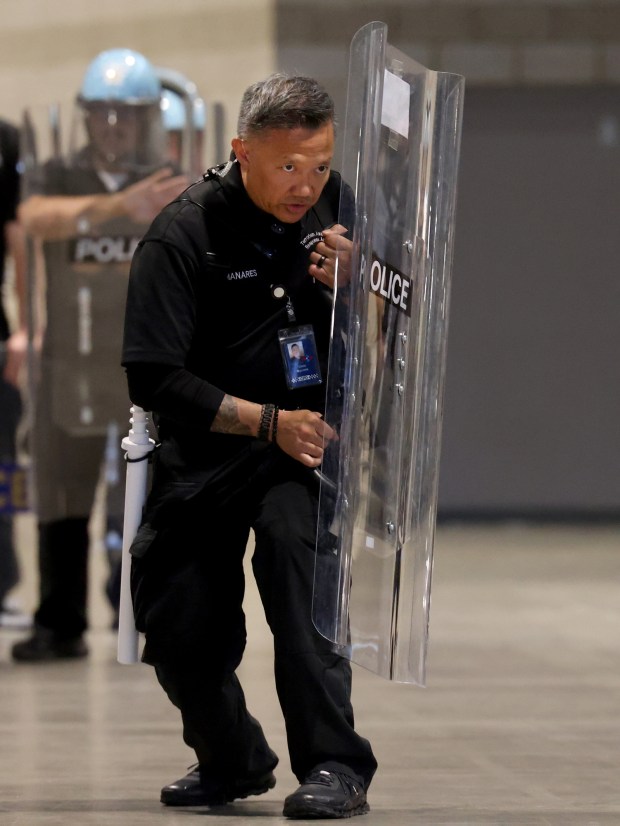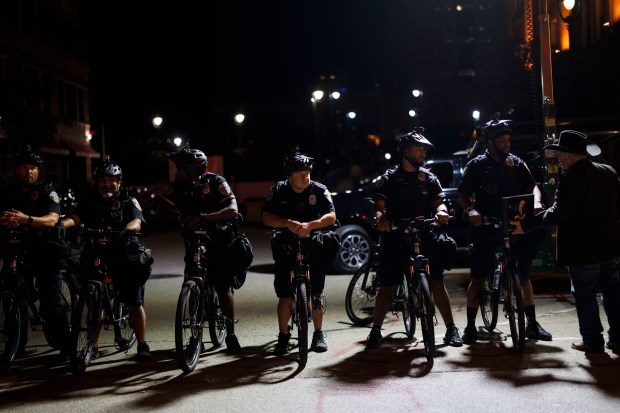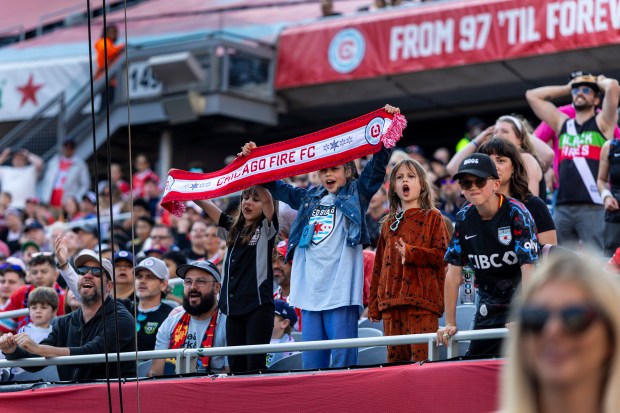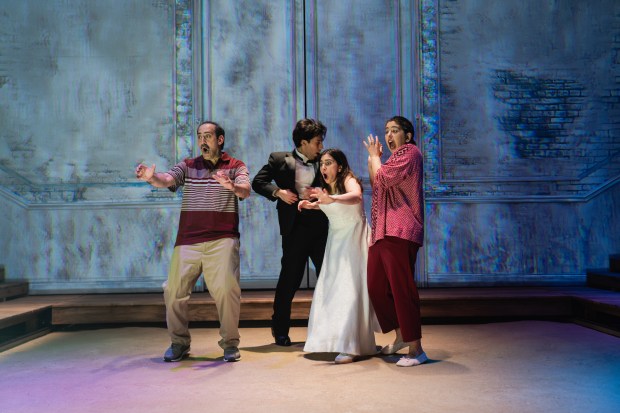Hundreds of extra law enforcement officers from across Illinois will be in Chicago later this month to assist the Chicago Police Department during the four days of the Democratic National Convention. But with the gathering less than three weeks away, it’s still not known which police departments will be sending personnel to Chicago or how many officers they will provide.
Police Superintendent Larry Snelling has said that the city will have as many as 500 extra officers on hand to guard “infrastructure” throughout the city during the DNC. And while activities around the United Center and McCormick Place will no doubt require significant manpower, the superintendent has pledged not to drain police resources from the CPD’s 22 patrol districts.
“Based on our assessment, we have a very good complement of officers who will be out there,” Snelling told reporters recently. “They’re highly trained, they will be responding professionally. And we’re going to make sure that as we work with our partners … we will make whatever adjustments we need to make as things change.”
CPD, in response to a Freedom of Information Act request from the Tribune, said this week that the final roster of “mutual aid officers” has not yet been set.
In an emailed statement, CPD director of news affairs Don Terry said the majority of additional officers will be from Illinois.
“The Chicago Police Department is in the process of finalizing mutual aid agreements for the upcoming Democratic National Convention with agencies from within the state through Illinois Law Enforcement Alarm System (ILEAS),” the statement read. “There will also be a contingent of officers from Milwaukee. Mutual aid officers will be focused on securing infrastructure and will not be assigned to patrol duties.”
Those officers — including those from Milwaukee, where the Republican National Convention was held last month — will undergo 12 hours of training and are expected to have minimal contact with the public while in Chicago.
Adding outside police resources in Milwaukee was not without controversy.
During the RNC, a police officer from Ohio fatally shot a person outside the convention’s security perimeter. Authorities have said that shooting appeared to take place to prevent a stabbing on the street and wasn’t related to RNC activity.
About 100 CPD officers were also in Milwaukee to assist during the convention.
Larry Evans, executive director of ILEAS, largely echoed Snelling this week, saying that mutual aid officers are expected to have little if any contact with Chicagoans. Evans said ILEAS — a group founded by police chiefs across the state after 9/11 to aid police departments in need and funded by a Department of Homeland Security grant — expects to send roughly 300 officers to Chicago for the DNC.
“The assignments, while not being specific, are all the types of assignments that will keep them, basically, out of the public eye and out of interaction with the general public,” Evans said.
Mutual aid officers will remain in full uniform during the DNC, and they are expected to arrive in Chicago a few days before the Aug. 19 start of the convention to undergo 12 hours of training related to their assignments, as well as briefings on the policies and expectations of CPD, Evans said.
Like Snelling, Evans, too, stressed that DNC preparations will remain fluid until the start of the convention, and security procedures will be constantly evaluated and tweaked as needed.
Officers from two local law enforcement agencies, Illinois State Police and the Cook County sheriff’s office, will not be counted among mutual aid officers, Evans said.
Chuck Wexler, longtime director of the Police Executive Research Forum, a Washington, D.C.-based police think tank, told the Tribune that mutual aid officers can play a crucial role in securing large-scale events by allowing local police departments to more acutely focus their resources.

“You’ve got security issues, you’ve got the right of people to protest, you want to allow that, and then you have potential terrorism issues,” Wexler said. “This is what protecting a modern convention looks like today.”
“The city of Chicago can’t pull (officers) from the neighborhoods,” Wexler added. “They have to balance protecting the convention but at the same time protecting the neighborhoods.”
For months, Snelling has stressed the training courses undertaken by CPD officers ahead of the four-day convention, drills that focus on crowd control and First and Fourth Amendment policies.
The city’s Office of Inspector General released a report in late May highlighting concerns about CPD’s preparedness for the anticipated throngs of protesters.
Though CPD has made strides since summer 2020 — when Chicago and other cities were wracked by violence and looting after the murder of George Floyd — the OIG’s report said the department’s training and policies to manage crowds “are insufficient and may increase the risk of infringement of lawful demonstrators’ constitutional rights.”





